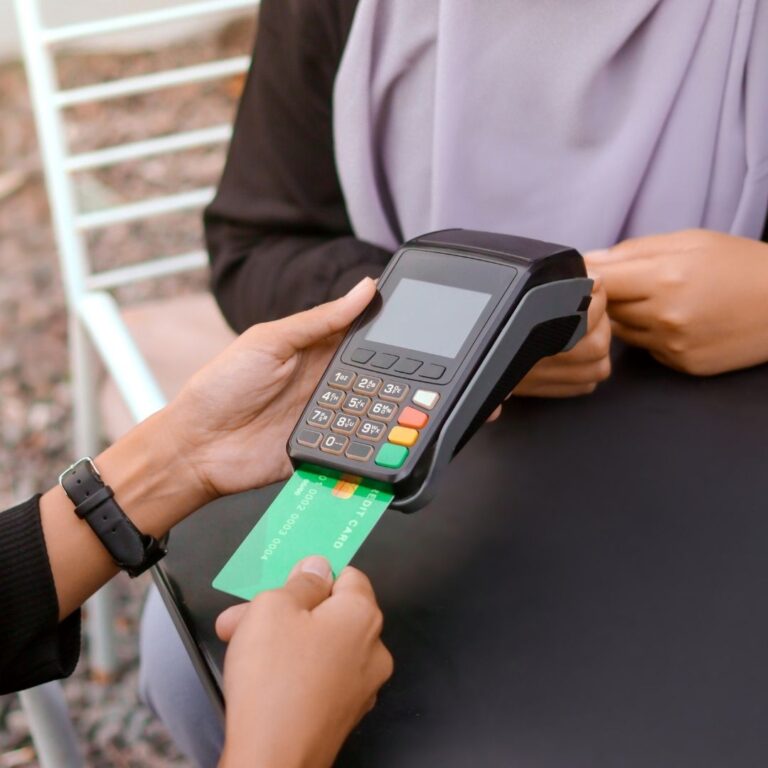Prohibited Kinds of Transactions Part IV: Contracts & Defective Returns
Introduction
The validity and ethical considerations of any kind of transaction are important in Islam. This article explores two key aspects: joining two types of transactions in one contract, and the return of merchandise because of a defect (informing a prospective buyer of defects in merchandise and returning defective merchandise). The article looks at scenarios such as combining a sale with a rental agreement, distinguishing between mahr (dowry) and sale prices in marriage contracts, and a seller’s obligation to disclose defects. This topic is added with examples from practices of trade in Islam and the traditions of the Prophet Muhammad (ﷺ), emphasizing fairness and transparency in transactions.
| Ustaz Anwar Notes | English Translation | Arabic Text |
| Most examples given by the author are related to the sale transaction of slaves. According to Ustaz, the author lived in an era where this is a common practice within the community. | It is valid to join two contracts of different kinds
(for example, a sale with a rent agreement) such as saying, “I sell you my slave* and rent you my house for a year for such and such an amount” (though it is not necessary that they be different kinds, for the ruling also applies to two contracts of the same type, such as a partnership linked with financing a profitsharing venture (qirad)), * Translated from ‘horse’ to ‘slave’ |
وإنْ جمعَ في عقدينِ مختلفي الحكمَ، مثلَ بعتُكَ عبدي وآجَرتُكَ داري سنةً بكذا، |
| The solemnisation is valid, but how can we differentiate the price between marriage and a slave?
In marriage, there’s mahr, or dowry, the bride wealth obligation by the groom. If the price has been agreed upon beforehand, there has to be a distinction between the price of mahr and slave. If the price is not said during solemnisation, then mahr al-mithl is required. |
or such as saying, “I marry you my daughter and sell you her slave (as her proxy, the proceeds being hers) for so-and-so much,”
* Translated from ‘house’ to ‘slave’ |
أوْ زوجتُكَ ابنتي وبعتُكَ عبدَها بكذا، |
| The transactions are valid, and there has to be a fair distribution between the two transactions being referred to in the example above. | and the price is considered as proportionately distributed over the two transactions. | صحَّ وقُسِّطَ العِوضُ عليهما. |
| (0: The criterion for defect is based on something that is expected to exist (in merchandise), whether this expectation results from:
-1- stipulations agreed upon -2- the customary level of quality for merchandise of its type; -3- or outright deception by the seller. The author does not mention (1) in this section, but confines himself to (2) and (3).) |
||
| The seller has to inform the buyer of any defects found in the item. The prophet s.a.w said that those who conduct fair and just transactions will be raised on the day of judgement amongst the prophets.
عَنْ أَبِي سَعِيدٍ قَالَ: قَالَ رَسُولُ اللَّهِ صَلَّى اللَّهُ عَلَيْهِ وَسَلَّمَ: «التَّاجِرُ الصَّدُوقُ الْأَمِينُ معَ النبِّيِينَ والصِّدِّيقينَ والشهداءِ» . رَوَاهُ التِّرْمِذِيّ وَالدَّارَقُطْنِيّ. Aba Sa‘id reported God’s Messenger as saying, “The truthful and trusty merchant is associated with the prophets, the upright, and the martyrs.” Normally sellers would want to sell their items fast, and this leads to haste in conducting sale transactions. The prophet s.a.w said: وعن أبي هريرة رضي الله عنه أن رسول الله صلى الله عليه وسلم قال: ” من حمل علينا السلاح، فليس منا، ومن غشنا، فليس منا” ((رواه مسلم)). Abu Hurairah (may Allah be pleased with him) said: The Messenger of Allah (ﷺ) said, “He who takes up arms against us is none of us; and he who cheats us is none of us.” [Muslim] |
Whoever knows of a defect in the article (0: he is selling) is obliged to disclose it. If he does not, he has cheated (0: the buyer, which is prohibited by the Prophet’s statement (Allah bless him and give him peace), He who cheats us is not one of us”), though the transaction is valid. | فصل [ردُّ المبيعِ بالعيبِ]:
منْ علمَ بالسِّلعةِ عيباً لزمهُ أنْ يبينَهُ، فإنْ لمْ يُبَيِّنْ فقدْ غشَّ، والبيعُ صحيحٌ، |
| The buyer has a right to return the item that has been bought should there be any defects, unless they can accept the defects. | When a buyer notices a defect in the merchandise that existed when the seller had it, he is entitled to return it.
(0: though if he is content to accept the defect, he does not have to return it. He may also return it when the defect occurs after the sale but before the merchandise is delivered since the merchandise is the seller’s responsibility during this period). |
فإذا اطَّلعَ المشتري على عيبٍ كانَ عندَ البائعِ فلهُ الردُّ. |
| (i) Flaw that diminishes the article/asset:
An item that is usually large/big, but when you buy it, there is a discrepancy in size. Or you only receive half of the item. Ustaz gave an example whereby a buyer ordered food for five people, but when the order arrived, it was only enough for one person. In this case, the buyer is allowed to return the food to the seller. (ii) Flaw that diminishes its value: The defects present in the goods contradict the intended purpose of the goods being sold and used. For example, if someone is selling a mobile phone, what will the buyer usually expect? He will ensure that all its functions are working. If the camera is not working, then its a deficiency in the value of the goods. |
The criterion (0: of defectiveness) is:
(a) any flaw that diminishes the article or its value to a degree that hinders a valid purpose; |
وضابطُهُ: ما نقصَ العينَ (i) أو القيمةَ نُقصاناً (ii) يفوتُ بهِ غرضٌ صحيحٌ، |
| If a defect like this does not usually exist, whereby it reduces the price of the goods or it is something that causes a reduction in the value of the goods, then it is an acceptable defect. The customer is allowed to return the item bought. For example, normally when buying a new phone, all functions are working. It is out of the norm for some functions to be defective if you are buying a new phone. Unless it is a used one. | (b) provided that such an imperfection does not usually exist in similar merchandise.
(0: The former restriction excludes such things as amputation of a surplus digit or a minor nick from the animal’s thigh or hock that is inconsequential and does not obviate its purpose, in which case there is no option to return it. The latter restriction excludes defects not generally absent in similar merchandise, such as missing teeth in older animals. There is no option to return such merchandise, even if the value is diminished.) |
والغالبُ في مثلِ ذلكَ المبيعِ عدمُهُ. |
| The author cites examples from the sale transaction of slaves as it is the norm back then. Firstly, if the slave is being castrated and has no genitals. Secondly, if the slave’s hand(s) has to be cut off due to a case of theft, and lastly if the slave frequently urinates on the bed although is grown up. | No translation
[self-translated] If the slave turns out to be castrated, or a thief, or urinates in the bed despite being an adult, then he/she should be returned. |
فيُردُّ إنْ بانَ العبدُ خِصيَّاً، أوْ سارقاً، أوْ يبولُ في الفراشِ وهوَ كبيرٌ، |
| When the buyer notices damage in the item and discovers a defect, they are able to seek compensation. For example, if the mobile phone they bought is damaged, but then they find out the camera is malfunctioning. In this case, they cannot return the phone because it is already damaged. Let’s say it costs $500, the defect amounts to $100. So the buyer receives $400 as compensation. | If the buyer notices a defect in the merchandise after it has been destroyed
(0: whether physically, such as an animal being killed, a garment worn out, or food eaten; or whether legally finished, by being no longer permissible to transfer from person to person, as when a site has been made an endowment (waqf)) then a compensation (A: from the seller to the buyer) is obligatory. (0: The buyer is entitled to it because of the impossibility of returning the article due to its no longer exiting. Compensation means a part of the article’s price whose relation to the whole price is the same as the relation of the value which the defect diminished to the full value of the article if it had been without defect. (N: The difference between price and value is that the value is how much money an article is worth in the marketplace, while the price is whatever the sale agreement specifies, whether this be more or less than the value.) The value in such a case is fixed at the lowest value (A: for articles of its type current in the marketplace) between the time the deal was made and the time the buyer took possession of it.) |
فلوِ اطلعَ على العيبِ بعدَ تلفِ المبيعِ تعيَّنَ الأرشُ، |
| If the buyer purchases a mobile phone then sells it to someone else, and the person discovers a defect, the original buyer cannot claim compensation. This is because they do not own the phone anymore. However, if the person who bought the phone from them returns it to the buyer due to a defect, and they return it to the original seller, they have the right to claim compensation. | The buyer is no longer entitled to seek compensation for such a defect if
(0: he notices the defect after) he no longer owns the article because of having sold it or otherwise disposed of it. But if such an article returns to the buyer’s possesion after this (0: i.e. after having left his ownership, whether as a gift, or returned (A: from a subsequent buyer) because it was defective, or because of a cancelled deal, or he buys it back), then he is entitled to return it (A: to the person who originally sold it to him). |
أوْ بعدَ زوالِ المِلكِ عنهُ، ببيعٍ أوْ غيرهِ لمْ يكنْ لهُ طلبُ الأرشِ الآنَ، فإنْ رجعَ إليهِ بعدَ ذلكَ فلهُ الردُّ. |
Conclusion
This article explores the rulings of transactions in Islam, focusing on combining multiple contracts in one transaction and the rules for returning defective goods. It can be concluded that sellers must be honest with buyers, and buyers have the right to fair dealings. These principles, rooted in the Prophet’s practices, ensure fairness and trust in business practices.
Written by Maryam Binte Aziz for notes on ‘Episode 191 – Some Prohibited Kinds of Transactions Part III: Joining Two Types of Transactions in One Contract + The Return of Merchandise Because of a Defect: Informing a Prospective Buyer of Defects in Merchandise, Returning Defective Merchandise’.
Edited by Nafisah Yusra Binti Abdul Rahim








